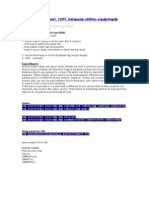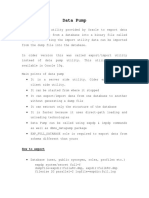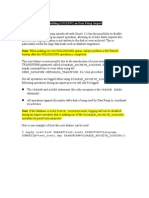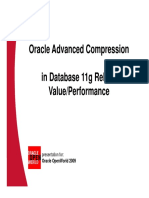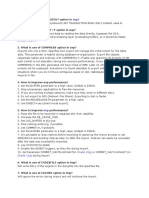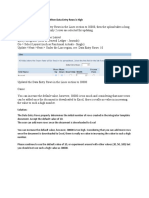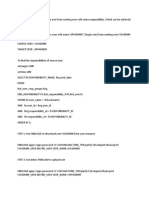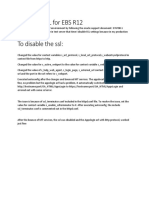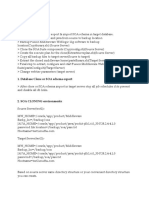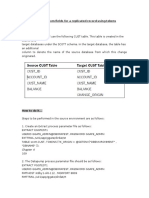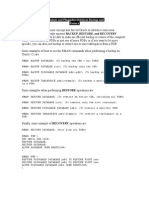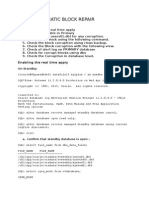0% found this document useful (0 votes)
191 views1 pageOracle 12c Compressing Tables On Import
Data Pump can now specify a different compression method during import than was used during export. This is enabled by a new TRANSFORM parameter called TABLE_COMPRESSION_CLAUSE, which allows ignoring the export compression and using the default for the tablespace, or specifying a valid compression clause like NOCOMPRESS, COMPRESS BASIC, or COMPRESS FOR OLTP. Quotation marks are needed if the compression clause has multiple words.
Uploaded by
doyenblogCopyright
© © All Rights Reserved
We take content rights seriously. If you suspect this is your content, claim it here.
Available Formats
Download as DOC, PDF, TXT or read online on Scribd
0% found this document useful (0 votes)
191 views1 pageOracle 12c Compressing Tables On Import
Data Pump can now specify a different compression method during import than was used during export. This is enabled by a new TRANSFORM parameter called TABLE_COMPRESSION_CLAUSE, which allows ignoring the export compression and using the default for the tablespace, or specifying a valid compression clause like NOCOMPRESS, COMPRESS BASIC, or COMPRESS FOR OLTP. Quotation marks are needed if the compression clause has multiple words.
Uploaded by
doyenblogCopyright
© © All Rights Reserved
We take content rights seriously. If you suspect this is your content, claim it here.
Available Formats
Download as DOC, PDF, TXT or read online on Scribd
/ 1





















